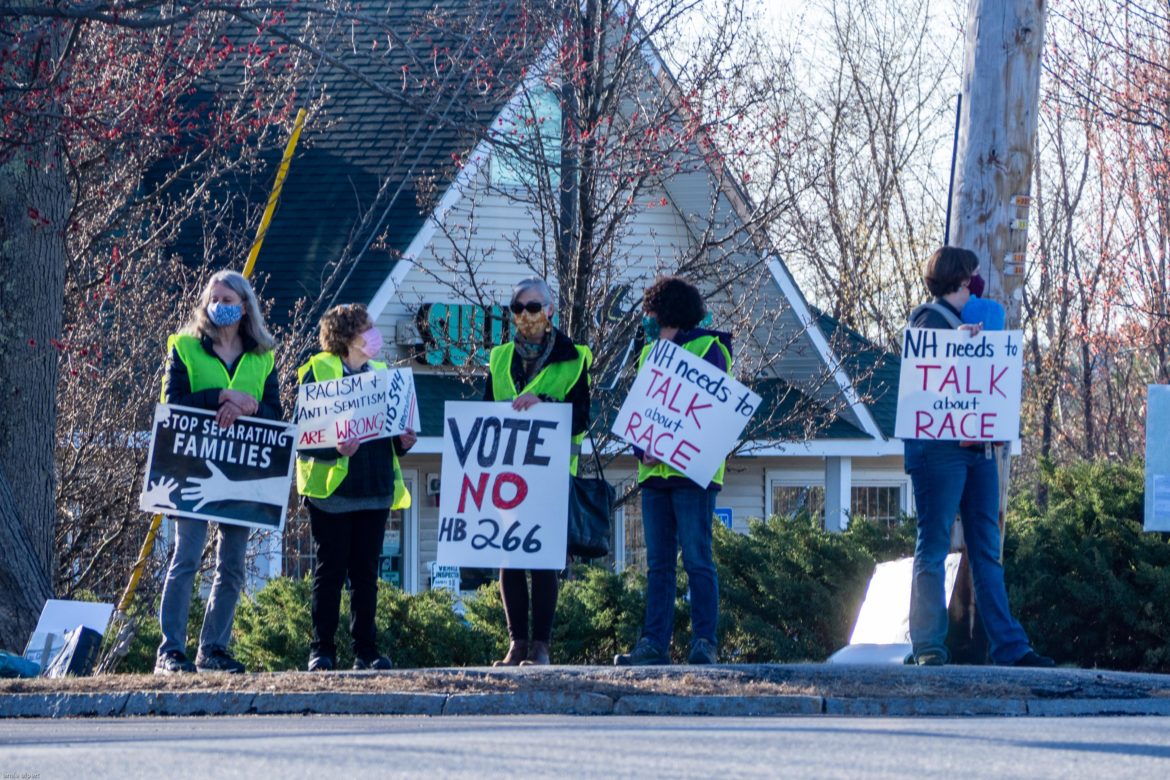By GARRY RAYNO, InDepthNH.org
BEDFORD — House Republicans continued their attempt to overhaul the state’s public education system Wednesday passing bills to provide parents with more choices for their students.
The House passed a bill that would allow school districts to contract with religious schools, although earlier the members failed to reach the 60 percent majority needed to advance a plan to repeal the state constitution’s prohibition on using public money for religious schools.
In its second of a three-day marathon to meet its crossover deadline to finish work on all of its bills, the House spent much of Thursday morning and into the afternoon on education bills.
The proposed constitutional amendment to remove the “Blaine amendment” from the constitution failed to advance.
While supporters of CACR 3, said recent U.S. Supreme Court rulings make the provision meaningless, opponents said the constitution has original language forbidding spending public money on religious schools.
The prime sponsor of the proposed amendment, Rep. Glenn Cordelli, R-Tuftonboro, said the U.S. Supreme Court in two recent decisions would override the provision in the state constitution opening the door for public funds for religious schools.
But Rep. Daivd Luneau, D-Hopkinton, said the proposal would eliminate a critical provision to protect religious freedom and the fundamental principle of separation of church and state.
“This would break down the walls and allow public funds to be used for religious education,” Luneau said. “In conjunction with other legislation today this will mean significant costs to the state,” he said.
He said the two U.S. Supreme Court decisions were very narrow and would not necessarily apply to New Hampshire’s constitutional provision.
And he said the Blaine amendment is not the controlling section of the state’s constitution.
“No one should be forced to fund someone else’s religious activity,” he said.
But Cordelli said the two U.S. Supreme Court decisions do apply to New Hampshire and make the current provision clearly unconstitutional.
The Blaine amendment is named after a Maine Senator who sought to ride anti-Catholicism to the presidency, he said.
“It is a relic of anti-Catholic bigotry,” he said, and “placed in our constitution for the benefit of the public schools of the era which were Protestant.”
At the time, the conflict between Catholics and Protestants led to riots and a church in Maine was burned, he noted.
“Religious bigotry is no better than racial bigotry,” Cordelli said. “Statues are being torn down around the country. What needs to be torn down are the statutes of bigotry.”
Former Supreme Court chief justice and now Rep. Bob Lynn, R-Windham, called the effort to kill the proposed amendment “a last ditch effort in deference to teachers’ unions to prevent parents of modest means, rather than wealthy parents, from accessing choices for the education of their children.”
That brought House Minority Leader Renny Cushing, D-Hampton, to his feet to object to Lynn’s insinuation about teachers’ unions and that led to more discussion about what is appropriate discourse on the House floor, which has been a constant topic for the first two days of the three-day run of sessions.
The vote on CACR 3 was 197-175 which failed to reach the 239 threshold needed to send the resolution to the Senate.
Tuition Schools
The House later approved a bill that would allow school districts that do not offer all 12 grades in their school district to include religious schools in tuition contracts and agreements.
Currently school districts can seek agreements with other public school districts, or non-religious private schools.
Opponents said the question of using public money for religious schools is currently going through the state courts and the legislature should see how that is resolved before moving forward.
Rep. Doug Ley, D-Jaffrey, said the bill is another attempt to funnel public money to religious schools.
While religious schools may be eager to accept public money, he said, they do not have to follow all public school requirements such as non-discrimination or accepting special education students.
But supporters of including religious schools said it is really about doing what is best for the students.
“The recent pandemic taught us a lesson,” said Rep. Rick Ladd, R-Haverhill. “Many public schools closed their doors and went to remote learning, and parents knocked on the doors of private schools and religious schools and homeschooling more than doubled. And we wonder why?”
The bill would really enforce local control where it really belongs, with the families, he said.
The bill passed on a 198-178 vote.
A similar bill that would allow students who qualify for a manifest hardship transfer to another school would be allowed to include religious schools as options.
House Bill 388 was approved on a 199-175 vote.
Period Poverty
The House refused to go along with the Education Committee recommendation to repeal a law passed last year to require school districts to provide menstrual products to low-income students.
Supporters said the program means some students attend school rather than stay home for several days because their parents cannot afford to provide the products.
But opponents said while providing the products for young women is a good thing, it violates the state constitution because it is a mandate that requires the school district to pay the costs.
The bill was tabled before the House could take a vote to kill the bill.
Until the House adjourns Friday evening, the bill may be removed from the table by a simple majority but will require a two-thirds majority after that date.
Emergency Meetings
The House made it more difficult — if not impossible — for school districts to hold emergency meetings to vote on a collective bargaining agreement.
Supporters said special meetings should not be held to vote on teacher contracts if the collective agreement has been voted down at the annual meeting. But opponents said the process is already well defined and ensures special meetings are not held frivolously.
Other Education Bills
The House also voted that students at public higher education institutions would have to take the 128-question Naturalization Examination and obtain a 70 percent to graduate.
Supporters said it would encourage college students to increase their civic knowledge and involvement, but opponents said the bill would fail to do that and instead would discourage out-of-state students from attending New Hampshire’s public higher education institutions.
Another bill would give charter schools the right of first refusal if a public school district decided to close one of its buildings, and another would protect schools displaying the national motto of “In God We Trust” from frivolous lawsuits.
The House also approved a bill that would allow parents to sue school districts if their children are bullied and the parents believe not enough was done to address the situation or mishandled it.
All approved bills are going to go to the Senate.
Garry Rayno may be reached at garry.rayno@yahoo.com.





